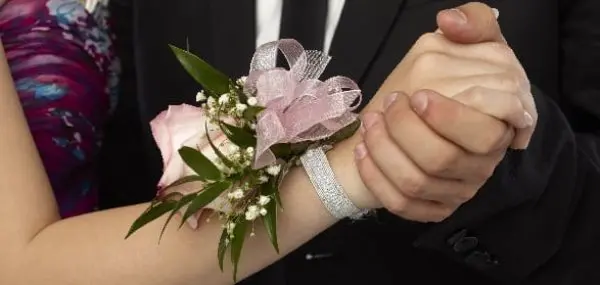Every now and then, there’s a news story that seems tailor-made to panic parents of teens. Online teen dating seems to be ready made for concern. Online dating has made its way to teens, with disastrous results.

In 2012, the friend-finding and dating app Skout temporarily shut down its teen component after three teen users reported that men posing as teenagers on the app raped and sexually assaulted them. The FBI has reported multiple cases of adult men sexually exploiting minors they met on mobile apps.
This is serious stuff. But when we asked teens about dating apps, they brushed off the idea that teens were using them. “High school kids don’t use dating apps … that’s more for adults,” one Ohio senior told us. A 17-year-old New Jersey senior agreed that it’s very uncommon, and added that apps like Tinder are “usually used ironically.”
According to teens, the real way to meet romantic prospects online is through their own traditional social media accounts. A high school junior offered, “Lots of my friends use Instagram to meet and start a relationship.” This was echoed by several other teens, who all agreed that commenting or liking a stranger’s (or a friend of a friend’s) social media posts might lead to in-person meetups later.
Whether they meet strangers through dating apps or social media, the considerations and risks are similar.
While people of all ages should use caution, meeting strangers online presents a particular danger to adolescents. Teens may exude social media-savvy, but they’re prone to risky behavior. Online safe dating isn’t always on their mind. And they often aren’t developmentally ready to spot red flags, says Christine Elgersma, senior editor of parenting education for Common Sense Media.
It’s critically important, then, for parents and teens to maintain an open dialogue about what teenagers are up to in real life and online, and to step in when necessary.
Today, social media enables teens to connect with and meet up with strangers much more easily than ever before. So it pays to be aware of the app world, even as it changes more quickly than we parents seem to be able to keep up with.
One example is Yubo (formerly Yellow), a newer app that turns Snapchat into a kind of Tinder, allowing users to swipe right on selfies of teens the user wants to be “friends” with, and then provides info to allow the two to connect on Snapchat. Yubo allows users 13 and older, but a Common Sense Media review rates it for 17 years and up. The site contains some sexually explicit photos and no effective age verification, according to the review.
Some other dating and friend-finding apps have restrictions that are supposed to protect teen users. MyLOL, which calls itself “the #1 teen dating site in the U.S., Australia, UK, and Canada,” requires users to be between the ages of 13-19 and requires those under 18 to say they’ve obtained a parent’s permission to use the website.
Of course, for a creative teen or cunning predator, circumventing these rules is as easy as snapping a selfie, experts warn.
By entering a fake birthdate or photo, anyone can end up on a site where they don’t belong. This puts teens at risk, cautions Ellen Harrell, director of outreach and prevention for the National Center for the Missing and Exploited Children (NCMEC).
| [adrotate banner=”76″] |
The possibilities to worry about online teen dating are endless, even with “good” teen dating sites. But the solution is the same, whether we’re talking about Tinder, Instagram, MyLOL or the latest yet-to-be-invented app. Stay aware, parents, and stay involved.
What Parents Can Do To Promote Safe Online Dating:
- Teach your teen to protect personal information such as their full name, phone number, address, birthdate, and school name. Remind them to turn off “location” in her apps, which allows others to see where she is when she posts.
- Ask them to identify a trusted adult they can approach (hopefully you) if they ever feel uncomfortable about an online encounter.
- Encourage them to trust their instincts. If something feels creepy, it probably is, advises Harrell.
- Focus on cyber safety rather than on individual apps, since new apps are always popping up.
- Check thier phone and online history. Know where they’re going online, recommends Elgersma, senior editor for Common Sense Media.
- Rely on open communication as opposed to programs that block apps or sites.
- Draw the line. Especially with dating apps, Elgersma emphasizes, it’s okay to say “no.”





